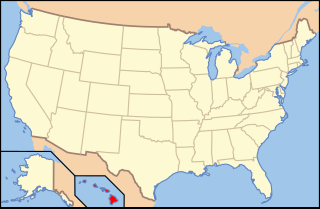Baker v. Vermont, 744 A.2d 864, was a lawsuit decided by Vermont Supreme Court on December 20, 1999. It was one of the first judicial affirmations of the right of same-sex couples to treatment equivalent to that afforded different-sex couples. The decision held that the state's prohibition on same-sex marriage denied rights granted by the Vermont Constitution. The court ordered the Vermont legislature to either allow same-sex marriages or implement an alternative legal mechanism according similar rights to same-sex couples.
The First Amendment or Amendment One/1 may refer to:
The Federal Marriage Amendment (FMA), also referred to by proponents as the Marriage Protection Amendment, was a proposed amendment to the United States Constitution that would legally define marriage as a union of one man and one woman. The FMA would also prevent judicial extension of marriage rights to same-sex couples.

The availability of legally recognized same-sex marriage in the United States expanded from one state (Massachusetts) in 2004 to all fifty states in 2015 through various court rulings, state legislation, and direct popular votes. States each have separate marriage laws, which must adhere to rulings by the Supreme Court of the United States that recognize marriage as a fundamental right guaranteed by both the Due Process Clause and the Equal Protection Clause of the Fourteenth Amendment to the United States Constitution, as first established in the 1967 landmark civil rights case of Loving v. Virginia.
Third Amendment may refer to the:

Prior to the Supreme Court's decision in Obergefell v. Hodges (2015), U.S. state constitutional amendments banning same-sex unions of several different types passed, banning legal recognition of same-sex unions in U.S. state constitutions, referred to by proponents as "defense of marriage amendments" or "marriage protection amendments." These state amendments are different from the proposed Federal Marriage Amendment, which would ban same-sex marriage in every U.S. state, and Section 2 of the Defense of Marriage Act, more commonly known as DOMA, which allowed the states not to recognize same-sex marriages from other states. The amendments define marriage as a union between one man and one woman and prevent civil unions or same-sex marriages from being legalized, though some of the amendments bar only the latter. The Obergefell decision in June 2015 invalidated these state constitutional amendments insofar as they prevented same-sex couples from marrying, even though the actual text of these amendments remain written into the state constitutions.

Ballot Measure 2 of 1998 is a ballot measure, since ruled unconstitutional, that added an amendment to the Alaska Constitution that prohibited the recognition of same-sex marriage in Alaska. The Ballot measure was sparked by the lawsuit filed by Jay Brause and Gene Dugan, after the two men were denied a marriage license by the Alaska Bureau of Vital Statistics. In Brause v. Bureau of Vital Statistics, 1998 WL 88743, the Alaska Superior Court ruled that the state needed compelling reason to deny marriage licenses to same-sex couples and ordered a trial on the question. In response, the Alaska Legislature immediately proposed and passed Resolution 42, which became what is now known as Ballot Measure 2. Ballot Measure 2 passed via public referendum on November 3, 1998, with 68% of voters supporting and 32% opposing. The Bause case was dismissed following the passage of the ballot measure.

Wisconsin Referendum 1 of 2006 was a referendum on an amendment to the Wisconsin Constitution that would invalidate same-sex marriages or any substantially similar legal status. The referendum was approved by 59% of voters during the general elections in November 2006. All counties in the state voted for the amendment except Dane County, which opposed it. The constitutional amendment created by Referendum 1 has been effectively nullified since June 26, 2015, when the United States Supreme Court ruled in Obergefell v. Hodges that state-level bans on same-sex marriage are unconstitutional.

Proposition 2 was a referendum for a state constitutional amendment placed on the ballot by the Texas legislature and approved by the voters at the November 8, 2005 general election. The measure added a new provision to the Texas Constitution, Article 1, Section 32, which provides that "Marriage in this state shall consist only of the union of one man and one woman", and "This state or a political subdivision of this state may not create or recognize any legal status identical or similar to marriage." Texas thus became the nineteenth US state to adopt constitutional amendment banning same-sex marriage. It was the most populous state to adopt a constitutional ban on same-sex marriage until California passed its ban in November 2008. The amendment was later invalidated in June 2015 after the Supreme Court legalized same-sex marriage nationwide in the Obergefell v. Hodges decision, though the amendment remains in the Texas Constitution.

Georgia Constitutional Amendment 1 of 2004, is an amendment to the Georgia Constitution that previously made it unconstitutional for the state to recognize or perform same-sex marriages or civil unions. The referendum was approved by 76% of the voters.

Michigan Proposal 04-2 of 2004, is an amendment to the Michigan Constitution that made it unconstitutional for the state to recognize or perform same-sex marriages or civil unions. The referendum was approved by 59% of the voters. The amendment faced multiple legal challenges and was finally overturned in Obergefell v. Hodges by the U.S. Supreme Court.

Constitutional Amendment 2 of 1998 amended the Constitution of Hawaii, granting the state legislature the power to prevent same-sex marriage from being conducted or recognized in Hawaii. Amendment 2 was the first constitutional amendment adopted in the United States that specifically targeted same-sex partnerships.

Same-sex marriage has been legal in Hawaii since December 2, 2013. The Hawaii State Legislature held a special session beginning on October 28, 2013, and passed the Hawaii Marriage Equality Act legalizing same-sex marriage. Governor Neil Abercrombie signed the legislation on November 13, and same-sex couples began marrying on December 2, making Hawaii the fifteenth U.S. state to legalize same-sex marriage. Hawaii also allows both same-sex and opposite-sex couples to formalize their relationships legally in the form of civil unions and reciprocal beneficiary relationships. Civil unions provide the same rights, benefits, and obligations of marriage at the state level, while reciprocal beneficiary relationships provide a more limited set of rights. When Hawaii's civil union law took effect at the start of 2012, same-sex marriages established in other jurisdictions were considered civil unions in Hawaii.

Florida Amendment 2 is an amendment made to the constitution of the U.S. state of Florida in 2008. It added Article I, Section 27 to the constitution, which defines marriage as a union only between one man and one woman, and thus bans the creation of similar unions, such as civil unions or same-sex marriage.

House Bill 444 was a 2009 bill of the Hawaii State Legislature, passed in April 2010 and vetoed by Governor of Hawaii Linda Lingle, that would have legalized civil unions for couples in the state of Hawaii. Its legislative process was accompanied by controversy over the bill's content and effects and rallies were held by supporters and opponents.
Same-sex marriage has been legally recognized in Nevada since October 9, 2014, when a federal district court judge issued an injunction against enforcement of Nevada's same-sex marriage ban, acting on order from the Ninth Circuit Court of Appeals. A unanimous three-judge panel of the Ninth Circuit had ruled two days earlier that the state's ban on same-sex marriage was unconstitutional. Same-sex marriage was previously banned by an amendment to the Constitution of Nevada approved in 2002. The statutory and constitutional bans were repealed in 2017 and 2020, respectively.

Baehr v. Miike was a lawsuit in which three same-sex couples argued that Hawaii's prohibition of same-sex marriage violated the state constitution. Initiated in 1990, as the case moved through the state courts, the passage of an amendment to the state constitution in 1998 led to the dismissal of the case in 1999. The Full Faith and Credit Clause of the Constitution would have provided that all states would be potentially required to recognize marriages obtained in Hawaii, prompting the passage of the federal Defense of Marriage Act (DOMA) in 1996 under Bill Clinton. Dozens of statutes and constitutional amendments banning same-sex unions at the state level also followed Baehr.

Lesbian, gay, bisexual, transgender, and queer (LGBTQ) people in the U.S. state of Hawaii enjoy the same rights as non-LGBTQ people. Same-sex sexual activity has been legal since 1973; Hawaii being one of the first six states to legalize it. In 1993, a ruling by the Hawaiʻi Supreme Court made Hawaii the first state to consider legalizing same-sex marriage. Following the approval of the Hawaii Marriage Equality Act in November 2013, same-sex couples have been allowed to marry on the islands. Additionally, Hawaii law prohibits discrimination on the basis of both sexual orientation and gender identity, and the use of conversion therapy on minors has been banned since July 2018. Gay and lesbian couples enjoy the same rights, benefits and treatment as opposite-sex couples, including the right to marry and adopt.

North Carolina Amendment 1 is a partially overturned legislatively referred constitutional amendment in North Carolina that amended the Constitution of North Carolina to add ARTICLE XIV, Section 6, which prohibit the state from recognizing or performing same-sex marriages, civil unions or civil union equivalents by defining male–female marriage as "the only domestic legal union" considered valid or recognized in the state. It did not prohibit domestic partnerships in the state and also constitutionally protected same-sex and opposite-sex prenuptial agreements, which is the only part that is still in effect today. On May 8, 2012, North Carolina voters approved the amendment, 61% to 39%, with a voter turnout of 35%. On May 23, 2012, the amendment took effect.
Same-sex marriage is currently not recognised in the Cayman Islands. The island's statutory law limits marriage to different-sex couples. A lawsuit with the Grand Court successfully challenged this ban in March 2019; however, the Court of Appeal overturned the ruling in November 2019. Same-sex civil partnerships are legal following the enactment of the Civil Partnership Law, 2020 on 4 September 2020.











